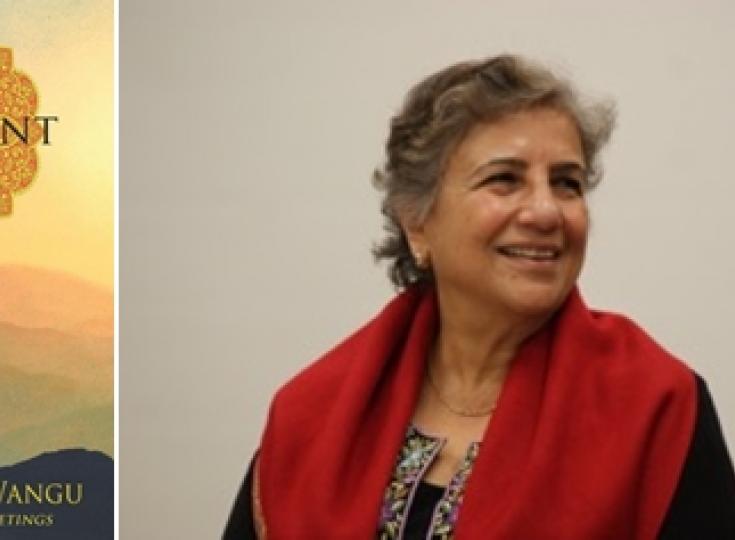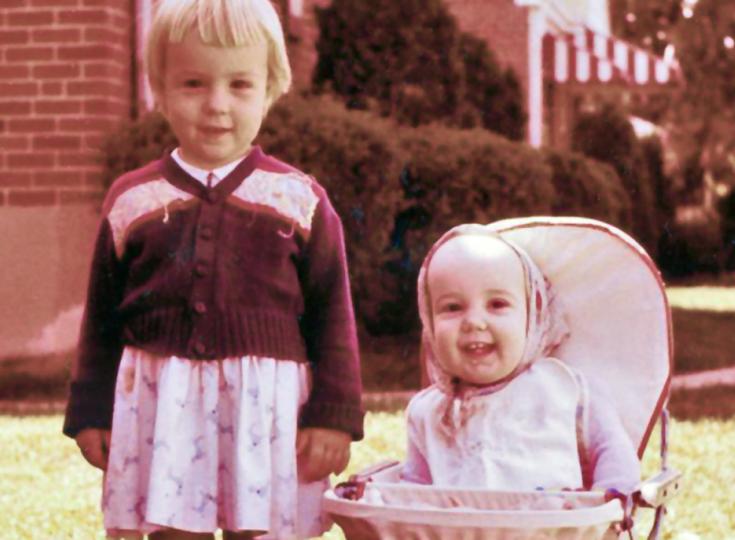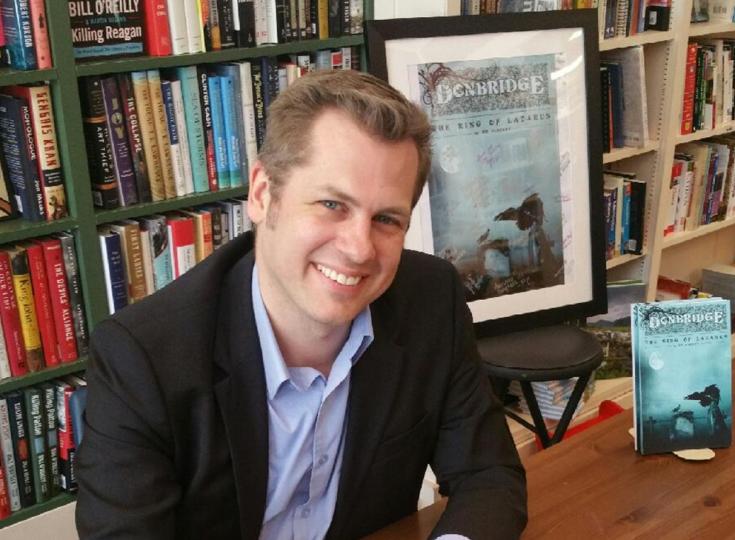Madhu Bazaz Wangu - Mastering the art of Mindful Writing

Before she became a full-time writer, Madhu Bazaz Wangu spent 15 years traveling the world, teaching Hindu and Buddhist art history at various universities. Wangu holds a doctorate in the Phenomenology of Religions from the University of Pittsburgh and a post-doctoral fellowship from the Harvard University and finds inspiration for her work in nature and through meditation. As our author of the day, Wangu talks about religion, reveals how a woman at a funeral inspired her to write The Immigrant Wife and tells us all about her Mindful Writers group.
Please give us a short introduction to The Immigrant Wife: Her Spiritual Journey.
The novel is about Shanti Bamzai, a girl on the brink of womanhood. She has big dreams. Rather than enter into an arranged marriage she embarks on a journey into the unknown to chart her own destiny. She navigates Art College, a marriage of her own choice and motherhood. In India, she battles pressures of traditional expectations and her own burning desire to become an artist. A move to America presents exciting opportunities but Shanti is hemmed in by the restrictions of her upbringing. Her children become adults and her marriage becomes a shell of what it once was. Shanti must find the courage to step out of her husband’s shadow and into the life she always dreamed of.
What inspired you to write this book?
The first two sections of the novel are fictionalized account of the life of a newly married woman artist from India whom I met at a funeral. The third half is about my experiences as I voyaged around the world with 700 students and twenty-five faculty members. We taught classes while we sailed from one port to the next. But when our ship was docked we visited monuments, theaters, markets and museums in eight different countries whenever our ship docked.

The Immigrant Wife is your debut work. What was the experience like so far?
It has been years of hard work. Writing, rewriting, revising, a roller coaster ride of discontent and gratification, encouragement and discouragement. But after the manuscript was completed and novel was published, the feeling was that of sheer joy! The joy intensifies when I read a review or when readers tell me how much they have enjoyed reading the novel.
Shanti's inner conflict has a lot to do with the pressures of traditional expectations, which keep her from following her dreams. Do you think this is something women today still struggle with?
Very much so! Not only in India but also throughout the world. In traditional cultures as well as so-called advanced countries. Uneducated women suffer more than literate and professional women. Because they are dependent and have nowhere to go.
Does this book have an underlying message? What do you hope that the reader will take away from it?
The underlying message is simple. Women are intellectually and creatively as much capable as are men. However, they have additional responsibility of bearing children. Yet, families and communities expect them to focus on being wives and mothers but sacrifice their creative talents, capabilities and intellectual potential for the sake of the family. If they dream “more than” the society expects they are looked down upon and their freedom is curtailed. We know they are capable of doing both.
It is up to each woman to find courage within and boldly follow her deep driving desire.

Your descriptions of the locations are very vivid - someone compared it to watercolors. How did you pull this off?
I was a professional artist before I became a writer. I have had five one-person shows and won awards for my art works.
Do you have a favorite line from the book, and can you explain what that line means to you?
“I do not belong to any religion all religions belong to me.” This is one of my favorite lines in the last section of the novel. Having read the scriptures of major religions of the world as I worked for my Ph.D. in Phenomenology of Religions I realized that at the core all religions teach similar lessons: compassion, wisdom, kingdom of God is within, impermanence of life, interdependence of life. I cannot in my right conscious call myself just a Hindu.
Besides writing, what other secret skills do you have?
No secret skills! You already know that I am an artist. I lead meditation for writer groups. I am recording my second CD of meditations. My first CD, Mindful Meditations for Writers: Body, Heart and Mind, is popular with beginning as well as professional writers. I also enjoy cooking.
What are you working on right now?
I’m revising the final manuscript of my second novel “The Last Suttee” and my second collection of short stories.

How have your travels across the world influenced your perspective on life and your writing?
The travels have opened my mind to our common humanity. Each time I visit a new country, at first I feel like an outsider. I look so different from them. Within one to two weeks that feeling is gone. I realize we may look different and think differently but we have same emotions, same feelings. At a deeper level, at the level of spirituality, at the core of our hearts, we are all one.
You founded a Mindful Writers Group. Why do you find it so important that writers use meditation?
I have been leading writers meditation groups for six years. We meditate for fifteen minutes followed by a three to four hours writing session. Meditation is important because it leads us to a place of stillness, silence and joy within that is also the source of our creativity. Being present in that space enhances intuitive ideas, insights and sharpens imagination. In that zone we are focused and thus more productive.
Where can our readers discover more of your work or interact with you?
Website: www.madhubazazwangu.com
Twitter:https://twitter.com/?lang=en
Facebook:https://www.facebook.com/madhu.wangu
For Book Clubs Email me: [email protected]
I could be there in person (in Pennsylvania) or meet you via Skype (anywhere else)








